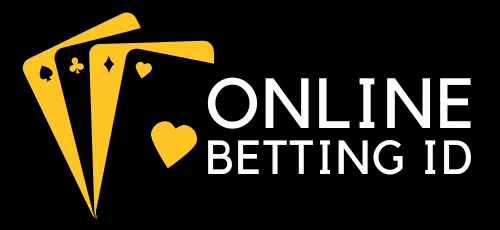
The game of Blackjack has some specific dealer rules that determine the flow of the game and also affects a player’s strategy. These rules govern how dealers have to play in various situations, which in turn influences the house edge and your choices at the table. At Online Betting Id, we believe it is important for every player to know these dealer rules if they are going to get better at playing this game. This blog will examine why dealer rules matter in Blackjack, their impact on gameplay and what you need to learn to play more effectively.
Understanding Dealer Rules
Dealer rules in Blackjack are predefined guidelines that must be followed by a dealer throughout the course of play. Unlike players who decide what move to make analytically or instinctively, dealers do not have any say over their actions and can only follow casino laid down instructions. The usual ones include:
Dealer Hits on Soft 17 (H17)
A soft 17 means that one of the cards in the hand has an Ace counted as 11 (e.g., Ace-6). Some casinos require their dealers to hit whenever they end up with a soft seventeen. By making this rule more favorable for them from an arithmetic standpoint, it gives them more chances of improving their hand.
Impact on Players:
Strategic Adjustments: When dealt such a hand, players may have to consider modifying their strategies; for instance, they may opt out of taking risks when doubling or hitting since they anticipate that the dealer will likely improve his/her poor hand.
Increased House Edge: Whenever dealers hit on soft seventeen, house advantage goes up by about 0.2%.
Dealer Stands on Soft 17 (S17)
In other cases where dealers stand on soft seventeen hands, however unlike H17 above where there is no way out other than hitting – This is always good for players because it limits how much worse things could actually go.
Impact on Players:
Consistency In Approach: Players can use normal basic strategy without deviating.
Lower House Edge: The house edge is slightly lower when the dealer stands on soft 17, benefiting the players.
Dealer Hits on Hard 16
A hard 16 is a hand with no Ace or an Ace valued at one (e.g., 10-6 or Ace-5). Dealers have to hit whenever they get a hard sixteen in order to avoid busting so often.
Impact on Players:
Risk Management: For instance, if a dealer’s weak hand totals to hard 16, then you should expect that he/she will continue hitting because there are chances of going bust.
Dealer Stands on Hard 17
The dealer has to stand on hard seventeen, which is a common rule across Blackjack games as such.
Impact on Players:
Predictable Outcome: When dealers stand at hard seventeen players can plan their moves better and operate within basic strategy outlines for more wins.
Why Dealer Rules Matter
Influence on House Edge
Dealer rules directly affect the house edge in Blackjack. For example, the rule requiring that the dealer hits soft seventeen gives the house a slight advantage hence increasing this margin by approximately two tenths percent. On the other hand, when these dealers opt for standing over hitting in case of soft seventeens it helps reduce house edges lowering thereby providing better winning opportunities for gamblers.
Getting into strategic decisions
Strategic decisions are based on knowing the rules of the dealer. For instance, if the dealer has to hit a soft 17, one might prefer to double down or split more conservatively. Alternatively, if the dealer stands on soft 17, players might decide to go for more offensive actions because the dealer’s hand is less likely to improve.
Game Variation Selecting
Understanding dealer rules can also help players choose which Blackjack tables or game variants to play. Games where the dealer stands on soft 17 are generally more favorable towards players. By selecting games with more player-friendly rules, you can enhance your overall gaming experience and improve your chances of winning.
Common Dealer Rule Variations
Double Deck vs Single Deck
The number of decks used in a Blackjack game can influence the house edge and player strategy. Single deck games typically offer a lower house edge, but many casinos use double decks or multiple decks to reduce the effectiveness of card counting.
Late Surrender
Some casinos offer late surrender where players can give up half their money after checking for blackjack by the dealer; this can be favorable in some cases reducing potential losses.
Re-splitting Aces
In some games there is re-splitting of Aces which can be an enormous advantage when playing them well; whether there is such an option is important as it guides your choices as far as dealing with pairs of Aces that you have been given is concerned.
Conclusion
Dealer rules significantly affect strategy and outcomes in Blackjack games; accordingly they represent a key factor in playing this entertainment form. Consequently through understanding these regulations gamers make rational choices and pick out better opportunities from available selections like Online Betting Id suggests its client base should familiarize themselves with such elements before playing any particular version so as to optimize their personal enjoyment of these online entertainments and achieve higher results at them while engaging in strategic gambling behavior at our virtual casino.

